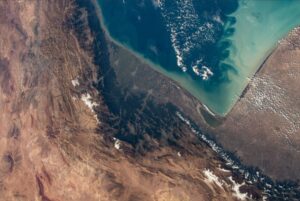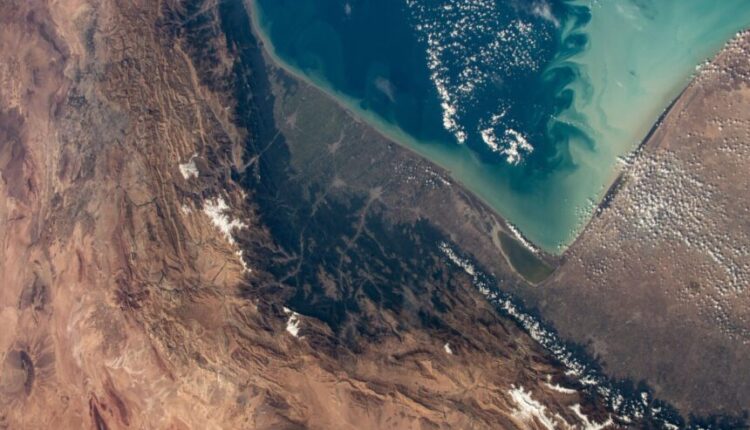Sea News – For the first time in recorded instrumental data, the water level of the Caspian Sea has dropped below its historic low. According to the Caspian Fisheries Research Institute (KaspNIRKh), the sea’s level has now fallen below -29 meters based on the Baltic Height System, marking an unprecedented record. This downward trend, which began in the 1990s, has seen a decline of approximately 80 centimeters since 2020.
The most significant decline is observed in the northern, shallow part of the Caspian Sea, bordering Russia and Kazakhstan, where the shallow depth makes these areas highly vulnerable to water level fluctuations. In these regions, the water has receded dramatically, exposing vast areas of the seabed. These areas are home to valuable native marine species, which are now under threat.
The primary cause of this sharp decline in water level is attributed to the reduced flow of the Volga River, which supplies over 80% of the Caspian Sea’s water inflow. Reports indicate that the average annual inflow from the Volga has dropped to between 210 and 232 cubic kilometers over the past four years, compared to a long-term average of about 250 cubic kilometers. This reduced inflow has disrupted the ecological balance of the Caspian Sea and exacerbated drought conditions alongside other factors.
Additionally, climate change and human interventions are cited as contributing factors to this crisis. Rising temperatures and evaporation, combined with the increasing exploitation of water resources for agriculture, industry, and urban use in the Volga River basin, have worsened the situation.
The consequences of the declining water level extend beyond environmental impacts. Reduced usability of docks, disruptions to shipping routes, damage to the fishing industry, and the drying of coastlines are among the challenges posed by this crisis. Furthermore, the continuation of this trend could lead to new tensions among the Caspian littoral states.
The Caspian Sea has now moved beyond a state of warning and entered a full-blown crisis. Experts warn that to prevent irreversible consequences, the five coastal countries—Russia, Kazakhstan, Turkmenistan, Azerbaijan, and Iran—must act swiftly and adopt urgent and effective collaborative measures to manage water resources sustainably and protect this strategic body of water.


